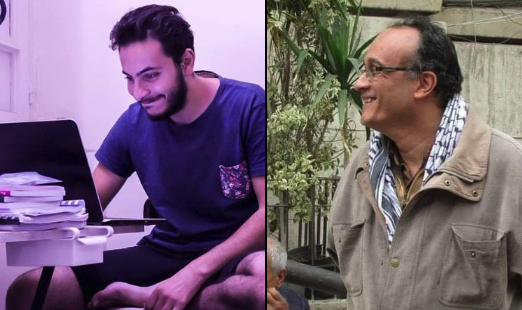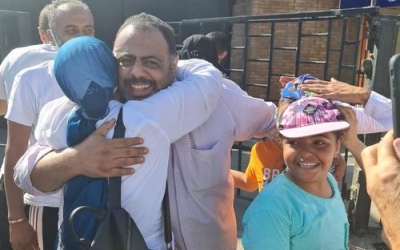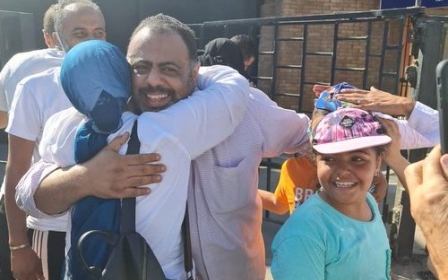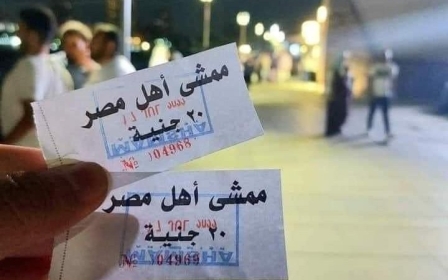Egypt: Journalist Hisham Fouad and researcher Ahmed Santawy given presidential pardon

Egyptian President Abdel Fattah el-Sisi has pardoned a journalist and a researcher as part of a series of pardons, according to a member of the Presidential Pardon Committee.
Tareq al-Awadi said on Friday that Sisi had initiated a presidential pardon for eight convicts.
The committee was formed in April to review the cases of prisoners eligible for the gesture.
In November last year, Hisham Fouad, a left-wing journalist and political activist, was sentenced to four years for allegedly "spreading false news," while Ahmed Samir Santawy was sentenced earlier this month to three years on the same charge.
Fouad and Santawy appeared before courts whose verdicts cannot be appealed, but they have now been released after Sisi's pardon.
New MEE newsletter: Jerusalem Dispatch
Sign up to get the latest insights and analysis on Israel-Palestine, alongside Turkey Unpacked and other MEE newsletters
Last year, Fouad launched a hunger strike in protest at his continued imprisonment beyond the legal two-year limit. He was seized by security forces in June 2019 along with other opposition figures.
Yellow vests
The pardons come after a judge on Monday ordered the release of human rights lawyer Mohamed Ramadan, who was accused of "terrorism" and had been held in preventative detention for nearly four years.
Ramadan, 43, was detained in December 2018 days after he posted a picture of himself on Facebook wearing a reflective yellow vest, in reference to the French "gilets jaunes" anti-austerity protests.
He was initially charged with possessing five yellow vests with the intention of holding anti-government protests similar to the French protests against the government of Emmanuel Macron.
Ramadan, also known as Abu Beibers, denied the charges at the time.
His lawyer, Mohamed Hafez, said that his client did not possess any yellow vests, adding that, even if he did, Egyptian law does not criminalise the possession of yellow vests.
'Torture and abuse'
At least 60,000 people have been imprisoned since Sisi came to power in a 2013 coup, according to Human Rights Watch (HRW).
Rights groups and medical professionals have called on the administration of US President Joe Biden to push Cairo into improving its prison conditions after a steep rise in inmate deaths was reported.
The reported conditions include "torture and abuse (including sexual abuse); lack of access to necessary medicine, treatment, or care; inadequate facilities that do not allow proper light or air circulation; and extreme overcrowding," according to HRW.
A report by the Freedom Initiative, an independent human rights group, highlighted the specific cases of 18 people it described as experiencing "critical cases of medical negligence" in Egypt's prisons, as well as 11 others who have died in recent years.
Egypt has also come under increased criticism in recent months over a drastic increase in state-sanctioned killings.
Sisi has said that Egypt does not hold any political prisoners.
Middle East Eye delivers independent and unrivalled coverage and analysis of the Middle East, North Africa and beyond. To learn more about republishing this content and the associated fees, please fill out this form. More about MEE can be found here.





